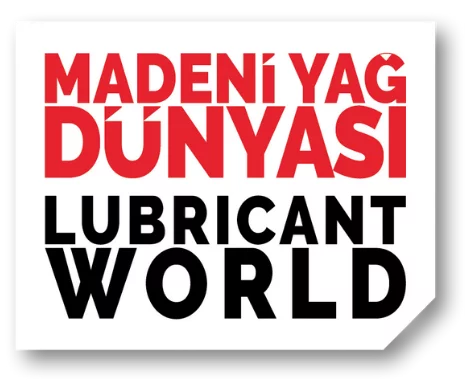The concept of sustainability is becoming increasingly important across all industries, encompassing environmental, social, and governance dimensions. Mechanisms like the Emissions Trading System (ETS) are employed to reduce carbon emissions. By allocating carbon emission rights to businesses, the ETS facilitates the trading of these rights and promotes environmental sustainability. It aims to enhance the international competitiveness of businesses by encouraging the adoption of lower carbon emission production methods. While Turkey plans to implement its own national ETS by 2025, this system is expected to significantly impact energy-intensive industries, such as the lubricants industry.
The term “sustainability” has become increasingly popular in recent months. Efforts continue at full speed to ensure that the sustainable adjective is used in almost every product and service in every sector. Sustainability encompasses three dimensions: i) Environmental, ii) Social, and iii) Governance. Currently, reducing carbon emissions is a major focus within the environmental dimension. This article will focus on emissions trading systems, which directly influence the economy’s carbon emissions.
The Emissions Trading System, as the name suggests, means trading carbon emissions. Businesses trade emissions under regulatory oversight and within a structured framework of rules. Due to our proximity to the market and our share in exports, the system our country is interested in and tries to comply with is the European Union Emissions Trading System. The EU Emissions Trading System has been actively implemented since 2005, which takes approximately two decades. The Union has broad experience in this regard.
In our country, the concepts of the emissions trading system and carbon footprint tax have been on the agenda in recent months with the statements of the Minister of Finance, Mr. Mehmet Şimşek. It is also quite difficult to access accurate information regarding the explanations on this subject. I’ve written this article to explain the emissions trading system and its impact on the sector for you.
Functioning and purpose of the Emissions Trading System
The ETS grants businesses certain carbon emission rights, enabling them to be bought and sold. If a business exceeds the amount of carbon emission allocated to it, it must purchase carbon credits for these excess emissions. In addition, businesses that remain below the emission limits can earn additional income by selling their remaining carbon rights on the market. This system provides economic incentives for businesses to reduce carbon emissions and also supports environmental sustainability.
The main purpose of the Emissions Trading System is to reduce greenhouse gas emissions caused by energy-intensive sectors. The European Union Emissions Trading System (EU ETS), which was put into practice by the European Union in 2005, is known as the largest and most effective emissions trading system in the world. Turkey aims to put its own national ETS into operation by 2025 and is taking various steps in this direction.
Implementation of ETS in Turkey and its impact on the lubricants industry
The lubricants industry is heavily affected by regulations aimed at reducing carbon emissions due to its energy-intensive nature. In this context, the Emissions Trading System (ETS) stands out as an important tool to ensure that businesses operating in the sector fulfill their environmental responsibilities. ETS is a market-based mechanism that aims to minimize the environmental impact of businesses by limiting carbon emissions in energy-intensive sectors.
Lubricant manufacturers in Turkey are among the businesses that can be included in the ETS due to their high energy consumption. The first step towards the implementation of a national ETS in our country was taken with the “Turkey Draft Regulation on the Operation of Carbon Markets” published in 2023. This draft reflects Turkey’s goal of fully implementing the ETS by 2025. Turkey’s ETS will be operated by EPİAŞ (Energy Exchange Istanbul – EXIST) to manage carbon allocations and regulate markets.
The lubricants sector is an industry with high carbon emissions potential, so the implementation of the ETS will have a significant impact on this sector. The ETS will encourage businesses operating in the sector to switch to lower carbon emission production processes. This will help businesses achieve their environmental sustainability goals while also increasing their international competitiveness.
“The ETS wIll encourage busInesses In the sector to swItch to lower carbon emIssIon productIon processes, enablIng them to both achIeve theIr envIronmental sustaInabIlIty goals and Increase theIr InternatIonal competItIveness.”
Green transformation and opportunities in the lubricants industry
The ETS offers economic incentives for lubricant producers to invest in green technologies. Businesses that switch to lower-emission production processes can gain a competitive advantage through carbon trading revenues. For example, a lubricant producer that reduces carbon emissions can generate additional revenue by selling its excess carbon allowances. This revenue makes it easier for the company to invest in greener technologies and helps reduce costs in the long term.
Another important opportunity brought by the ETS is that businesses in the sector will reduce their carbon footprint and thus become more competitive in the international market. Large markets such as the European Union attach more importance to products that keep their carbon footprint low. This will enable lubricant producers in Turkey to access these markets more easily thanks to the ETS.
Carbon management and strategic planning in the sector
The implementation of the ETS will bring about a strategic planning process in the lubricants sector. Businesses will have to monitor and report their carbon emissions. This process will allow companies in the sector to better understand their environmental performance and make improvements in this regard. In addition, monitoring and managing carbon emissions will make it easier for companies to achieve their sustainability goals.
For the ETS to be successfully implemented, businesses in the lubricants industry need to develop strategies to reduce their carbon footprint. These strategies may include measures such as energy efficiency, use of renewable energy, and investment in low-carbon production technologies.
“The lubrIcants Industry’s adaptatIon to thIs system wIll allow It to achIeve both envIronmental and economIc gaIns.”
The Emissions Trading System stands out as a powerful tool for the Turkish lubricants industry to contribute to environmental sustainability. The industry’s adaptation to this system will allow it to achieve both environmental and economic gains. Lubricants producers can switch to lower carbon emission production processes through the ETS, increase their competitiveness in the international market, and provide cost advantages in the long term. Therefore, the adoption and effective implementation of the ETS by businesses in the sector will contribute to Turkey’s achievement of its environmental goals and secure future success for the sector.





